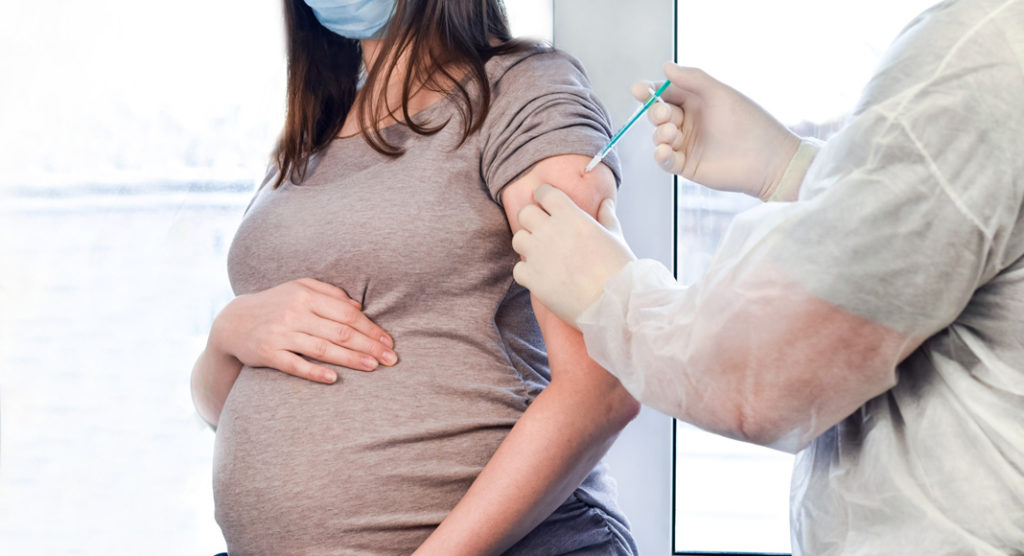
Mega Doctor News
Newswise — Pregnant women – considered to be at high risk for complications if they contract COVID-19 – were not included in clinical trials for the current vaccines, leaving many confused over whether or not they should be vaccinated.
Justin Brandt, an assistant professor in the Division of Maternal Fetal Medicine at Rutgers Robert Wood Johnson Medical School and director of quality and safety for the department of OB/GYN, talks about the information provided by the Centers for Disease Control and Prevention and what pregnant women should consider when deciding.
What do we know about the safety of receiving the vaccine during pregnancy?
Pregnant women were excluded from vaccine trials, and we do not have data about the safety of the vaccine in pregnancy. The use of the Moderna and Pfizer vaccines in pregnancy, though, is supported by the mechanism of the vaccine platform, which is theoretically safe for mothers and their unborn children. The vaccine does not contain live virus. It does not have vaccine adjuvants to enhance efficacy. The viral messenger RNA, which provokes the maternal immune response to fight against SARS-CoV-2, the virus that causes COVID-19, does not enter the nucleus of cells, where DNA is stored. This suggests a reassuring safety profile for pregnant patients. Further, the vaccine leads to antibodies that can cross the placenta and provide some protection for the baby.
How are doctors advising pregnant patients or breastfeeding mothers on whether to get the vaccine?
The vaccine trials have shown a high degree of safety and efficacy for non-pregnant patients. Given the theoretical safety of the vaccine platform and the results of clinical trials, it is likely that the safety and efficacy profile may be similar for pregnant patients. Although patients must consider the potential for unknown risks of the vaccine in pregnancy, there are other important factors that must also be considered, such as the impact of pregnancy on disease severity, their personal risk factors for severe disease and their potential for exposure.
Pregnancy is a risk factor for severe COVID-19. Pregnant women with COVID-19 are more likely to be admitted to the intensive care unit, to be intubated and to die compared to non-pregnant women with COVID-19. Pregnant patients with severe disease are also at increased risk for obstetrical complications, such as preterm delivery. Some patients have individual risk factors that may further increase the risk. Medical conditions, such as obesity and diabetes, can substantially increase the risk of severe disease.
Patients need to consider their exposure risk. Essential workers, including those health care workers on the front lines, are likely to be exposed to the virus, but everyone is at risk when they leave their homes, especially considering the emergence of coronavirus variants that are more infectious. The CDC considers pregnancy to be a high-risk condition, and the Advisory Committee on Immunization Practices has recommended prioritizing pregnancy with other high-risk conditions as part of the 1c rollout. This means that pregnant patients must decide if they feel the benefits of vaccination outweigh the risks. I hope that most pregnant patients will choose vaccination, but this remains their choice.
Should the vaccine be avoided in the first trimester?
As of now, there are no recommendations for patients to avoid the vaccine in the first trimester of pregnancy. Pregnant patients prioritized for vaccination and who want the vaccine can receive it in any trimester.
Is there a potential benefit for babies exposed to the vaccine in utero?
We know there is antibody transfer through the placenta. A recent JAMA Pediatrics article looked at the cord blood of babies whose mothers had natural infections, and there were significant amounts of antibodies in the umbilical cord blood. The infants with the highest levels were actually those exposed to the infection in early pregnancy. We are still learning about what this means in terms of the vaccine, but the data suggest that passive antibody response is a strategy that may protect babies before childhood vaccination. This should provide some comfort for pregnant patients during the pandemic.
Why do professional societies support vaccination in pregnancy but fall short of recommending the vaccine?
Without safety data, it’s hard for the professional societies to recommend the vaccine. That said, many professional societies have published statements in support of vaccination in pregnancy and have advocated that the vaccine should not be withheld from patients because of pregnancy and lactation. Many of these societies have also called for the inclusion of pregnant patients in research.
Why don’t we have more data about the safety of the vaccine in pregnancy?
Pregnant patients were excluded from research studies as a strategy to avoid exposing patients to unknown risks associated with experimental therapies. As a result, we are in this position, talking about unknown risks in pregnancy of the vaccine that public health experts believe is most likely to end the pandemic. Further studies are planned in pregnancy, which is important if we are to protect pregnant patients and unborn babies through research.
Are there clinical trials underway that include pregnant women?
Animal data from preclinical developmental and reproductive toxicity studies suggest a favorable risk profile for Pfizer’s and Moderna’s vaccines. These studies did not suggest adverse effects on reproduction or fetal development. Pregnant patients were excluded from the Moderna and Pfizer vaccine trials, but some pregnant patients, inadvertently exposed to the vaccine, are being monitored. More studies of pregnant patients are planned. Just this past week, Anthony Fauci, director of the National Institute of Allergy and Infectious Diseases, announced that the FDA’s vaccine surveillance of more than 10,000 pregnant women who received the vaccine did not identify any “red flags.” Although these are limited data, the early results are reassuring.
What do you most want pregnant patients to know about the vaccine?
For many patients, the decision is whether to get the vaccine or to get COVID-19. I agree with this sentiment, and I want my patients to know that I support their decision to get vaccinated.









